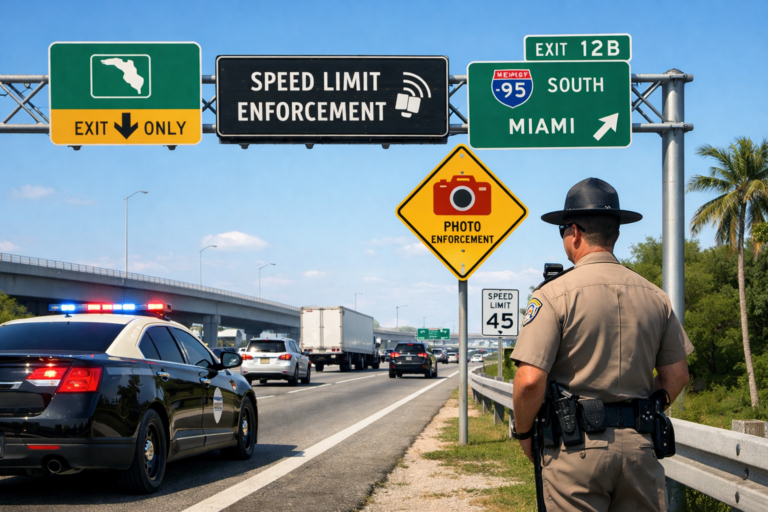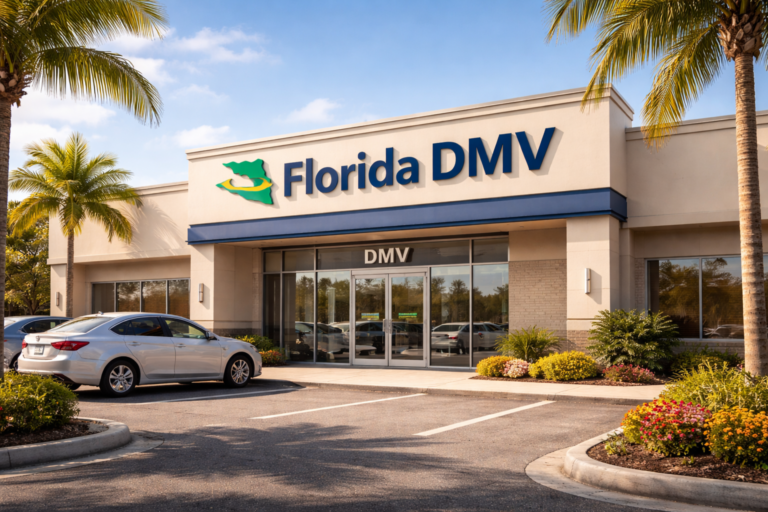If you recently moved to Florida, chances are your driver’s license and license plate belong to another state. And you might be wondering how long you can get away with driving in Florida with those out-of-state licenses. After all, how could the police possibly know how long you’ve been here? We suggest you don’t find out the hard way.
According to Florida Department of Highway Safety and Motor Vehicles: “In the state of Florida, a motor vehicle is required by law to be registered within ten days of the owner either becoming employed, placing children in public school, or establishing residency.” Now, you might be thinking, “So what? I can take care of it after getting a citation and everything will be ok.” Right, and wrong. It is true that Florida law allows you to produce a valid Florida driver’s license and/or vehicle registration at the time of your traffic court hearing if you are cited for this type of violation. So it’s tempting to think you can ignore updating your driver’s license and vehicle registration until you get a citation and then deal with it after. Unfortunately, it’s not that easy.
Moving To Florida Drivers License
There are a number of prerequisites to registering your vehicle in Florida. First of all, you need to get a Florida driver’s license. This can be as simple as passing an eye exam if your driving record from your previous state is clean. But if there are any unresolved traffic citations on your previous state’s driving record, or if the Florida DMV examiner questions your ability to safely operate a vehicle, you may be requested to take a written and/or driving test. This can add weeks to the process depending on schedule availability. Another prerequisite to registering your vehicle in Florida is obtaining a valid Florida auto insurance policy. Again, this can be as simple as a phone call, or more difficult if your driving record contains traffic citations which were not considered by your previous insurance carrier (for example, traffic citations received since the last policy renewal which usually occurs every 6 or 12 months).
The final hurdle to registering your vehicle in Florida is obtaining a copy of the car’s title. This is a simple matter if you own the car outright, in which case you should have a copy of the title issued by the previous state. But if your car is leased or financed, you must obtain a copy of the title from the lienholder. This can take a while, and by “a while” we mean several months, depending on the previous state and lienholder (we’ve seen it take up to three months due to supposed “backlogs”).
Add it all up, and you could potentially be waiting months before you get your new Florida driver’s license and vehicle registration. So don’t fool yourself into thinking it’s not a big deal to delay getting your Florida driver’s license and vehicle registration after moving to the state. Before you know it, weeks can turn into months, and those months can multiply.
It is worth noting here that the penalty for driving with an expired (more than 6 months) driver’s license (Florida Statutes 322.03) and/or license plate (Florida Statutes 320.07) is a second-degree misdemeanor, with penalties of up to 60 days in jail and a $500 fine.
So don’t wait. Update… your driver’s license and vehicle registration immediately after moving to Florida. Enjoy the weather!



